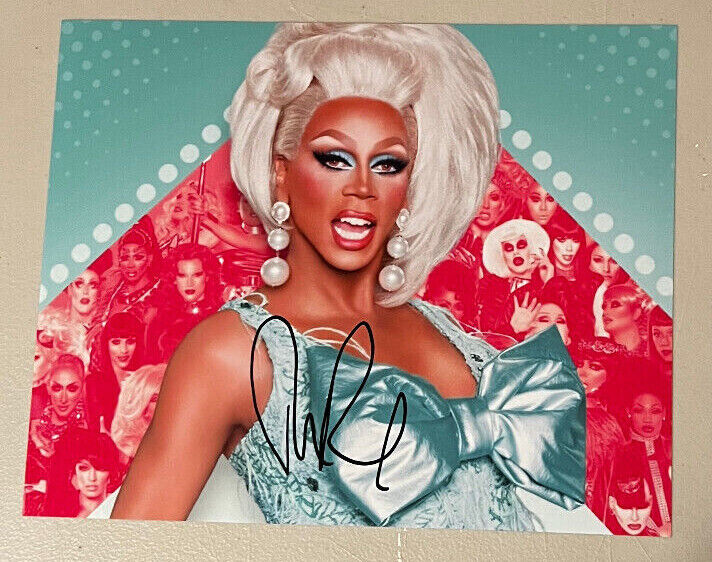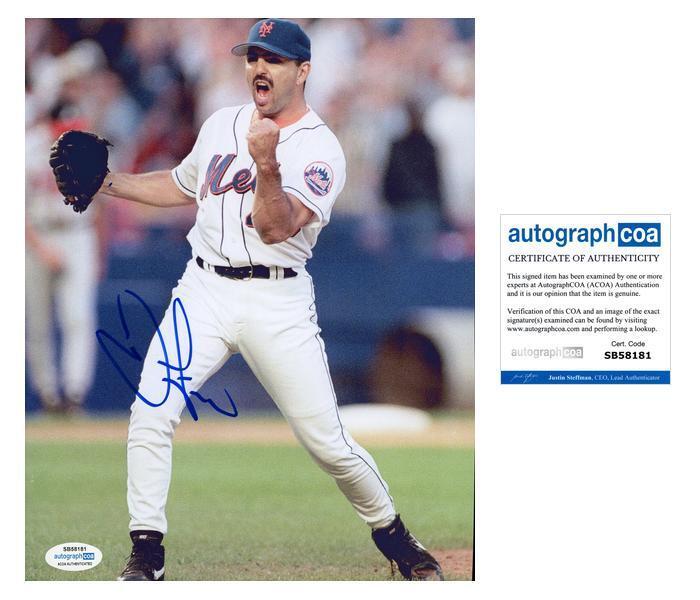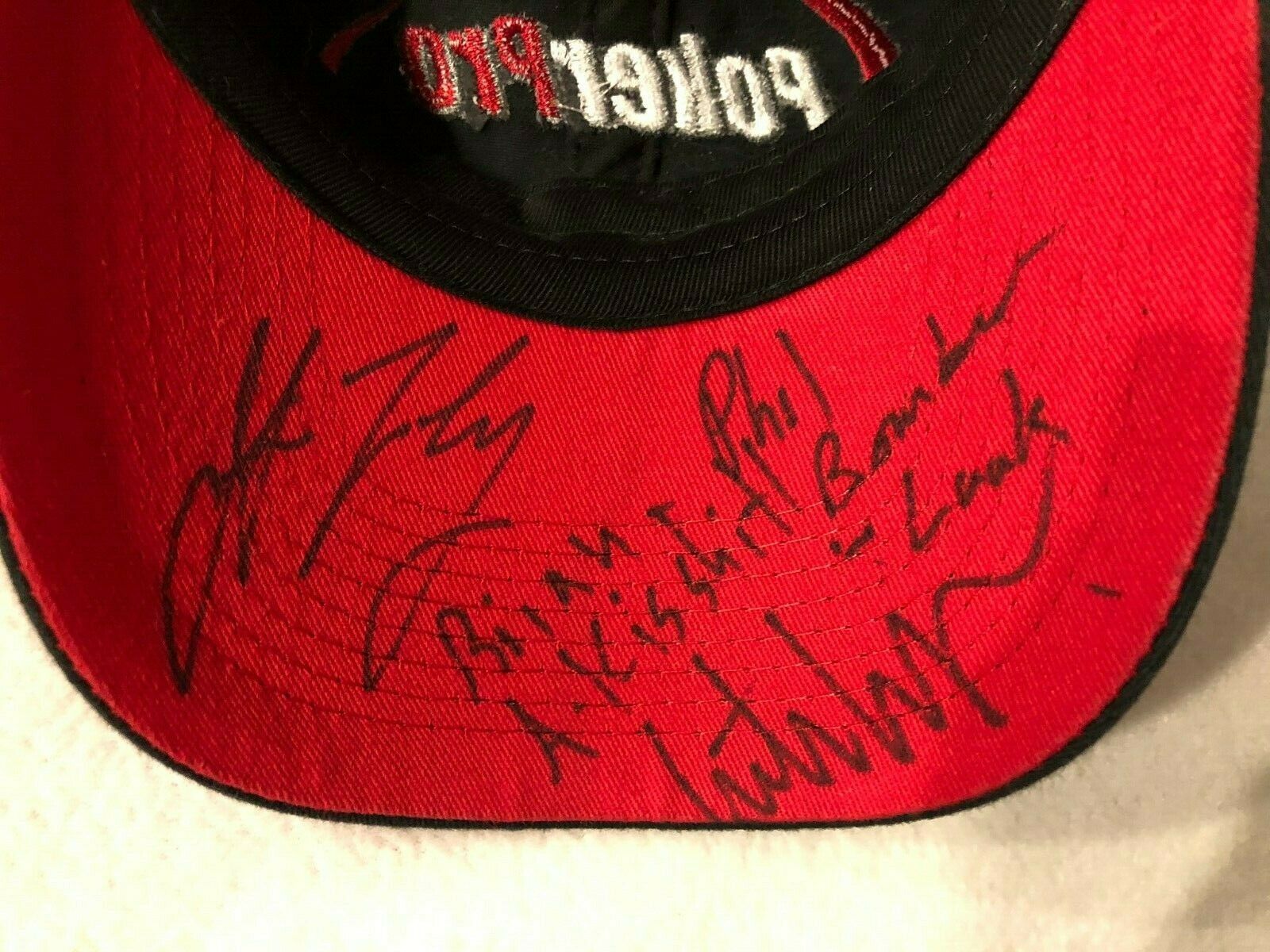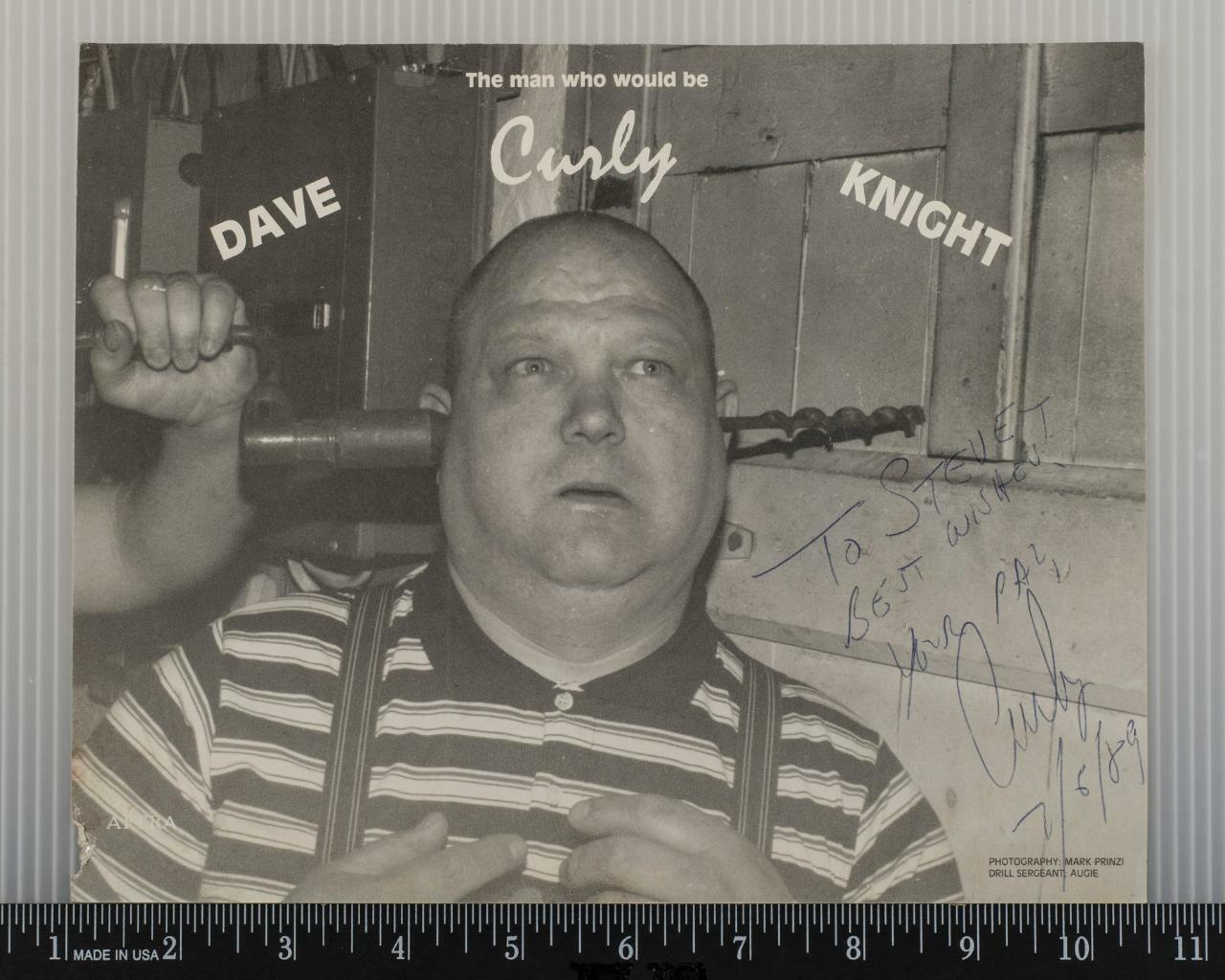-40%
Julian Cope Autographed book "Head-On" from The Teardrop Explodes
$ 39.6
- Description
- Size Guide
Description
A signed copy of Julian Cope's 1994 book "Head-On. Memories of The Liverpool Punk scene and the story of The Teardrop Explodes 1976-1982". It is in paperback and is labeled "Golden 1000 3rd Edition".Size: approx 7" X 4". 249 pages. Photos.
It is from England. The publisher is Head Heritage.
online review:
The Teardrop Explodes were a brief, bright light in the pop firmament. They managed to put out two albums (and more came out after they disbanded), made a number of appearances on
Top of the Pops
, and toured quite extensively before imploding. They were at the top of the world in 1980 and 1981 -- and then they were gone. It's an all-too familiar story in the music world.
For glam front man Julian Cope The Teardrop Explodes were only a brief, first touch of fame -- but even he has been hard-pressed to achieve anywhere near the same renown with his later efforts. The Teardrop Explodes remains legendary, one of those iconic groups whose music isn't often heard but whose echoes still reverberate loudly. There was something special about those times, and The Teardrop Explodes briefly captured the moment. Even the supremely talented Cope hasn't been able to match this first success with his solo efforts.
Head-On
is pop-autobiography: Julian Cope tells his story. Generally, the advice that musicians should let their music speak is sound, but Cope does a fine job here providing the background story to his music. The focus is on the years 1976 to 1982 as Cope's unlikely life unfolds with great rapidity -- from unprepossessing small-town teen to international (and then washed-out) rock star in a matter of a few years.
It seems an unlikely road to success, all along. Raised in Tamworth, in the English Midlands, Cope seems to have been a good little boy for a while. "At age 15, I was Andrew Marvell and John Donne" -- and then a year later "I was Jim Morrison in those leathers on the front of The Doors'
Absolutely Live
LP".
He wanted to make music, and he wanted to hang with the freaks. Escape to university was a beginning. His exam results didn't rate the hoped for place in a leading university -- instead it was off to C.F.Mott College, Prescot, whose only redeeming quality seems to have been its vague proximity to Liverpool and the scene there.
Cope never really got into the academic pursuits at college, though he seems to have felt fairly comfortable in the atmosphere (with all these studious kids around him). His greatest ambition appears to have been "working towards some kind of look" (a lifelong pursuit, apparently). Music is what's most significant -- hearing bands play, getting the newest albums. And punk reigns, though its end is already clearly in the offing.
Cope forms a band of sorts called The Crucial Three with Pete Wylie and Duke McCool -- as Ian McCulloch, later to lead Echo and the Bunnymen, was sometimes known. It goes nowhere. Bands are formed and fall apart left and right, sometimes just for a single gig, it seems.
Eventually Big in Japan's Bill Drummond (of later KLF fame) and David Balfe (who signed and sold Blur) formed The Zoo record label and started out with two new bands: Cope's The Teardrop Explodes and McCull's Echo and the Bunnymen. Cope got the (brilliant) name for his band in a
Super D.C.
comic -- a copy is among the illustrations in the book.
Success seemed unlikely, but success came -- with a vengeance. The Teardrop Explodes were something of an overnight sensation, though success was often less than what was hoped for (and, occasionally, overwhelmingly more). At Zoo records there was a constant jostling between Echo and the Bunnymen and The Teardrop Explodes -- who was to be pushed, and how. Given that neither Drummond nor Balfe seemed ideal choices for managers -- and given that there was often a great deal of animosity and tension between all the parties -- it is almost surprising that things lasted as long as they did.
Cope never took drugs, but once the first album (the classic
Kilimanjaro
) was on the way he "moved in two short months from Drug Puritan to Acid King". This -- which occurs halfway through the memoir -- marks a radical transition, and the remaining 100 pages are fairly drug-addled. Cope enjoys his drugs and consumes them in way too great quantities and somehow (bafflingly) just gets by. Cope becomes a star, The Teardrop Explodes a phenomenon (though when they play America they see they aren't quite as big there as back home). They tour, extensively, and then the Teardrop (which barely ever held together, and had already juggled members of the group) finally, truly explodes beyond repair. 1982, and it's all over.
Cope marvelously evokes the Liverpool scene in the late 70s -- Probe records, Eric's, his college. He's just as good on his visits to New York, and the American and Australian tours by The Teardrop Explodes.
Living the oddest lifestyle (there are more hair-raising anecdotes about what should be mundane day-to-day life than one could possibly imagine), there are also the incongruous touches of reality -- scenes from family life, sipping tea, a summer working in a paper mill. There is an unusual assortment of friends, enemies, and hangers-on -- from the infamous Smelly Elly to Drummond, McCulloch, and Balfe -- a cast of characters you could hardly invent for a work of fiction. Cope also describes his various loves and lusts -- doing a fair and good job of it.
Band life, and the life of a semi-star -- on the one hand Cope is on magazine covers all over, on the other he is still only taking home £ 35 a week. -- are nicely described. The grunge -- and punk grunge puts Seattle to shame -- gets a bit out of hand (washing seems extremely unpopular), but one certainly gets all the dirt on all those involved.
Cope has a breezy style and a sense of humour and he doesn't take any of it too seriously. This is not earnest or vindictive autobiography. Cope doles out blame (and recognition) copiously, and he is as hard on himself as on anyone else. He captures the ambiguities of all the complex relationships, and there is a self-deprecating humour throughout the book.
This dirty, loud, and very messy scene is surely not to everyone's taste, but for anyone who wants to see how truly absurd the musical life is, and how easily success can come and go, Cope's book is a must read. It's an entertaining account: Cope is a clever guy, and he has a lot of fun with this part of his life. There is, remarkably, almost no self-pity, and very little wallowing (except -- literally -- in filth and drugs). Perhaps the only thing missing is a more detailed description of the creative process itself. The Teardrop Explodes made some good music, and Cope treats it almost too lightly, as though it has little to do with the success of the group.
Head-On
is strange but fun -- and well-written. Recommended.











